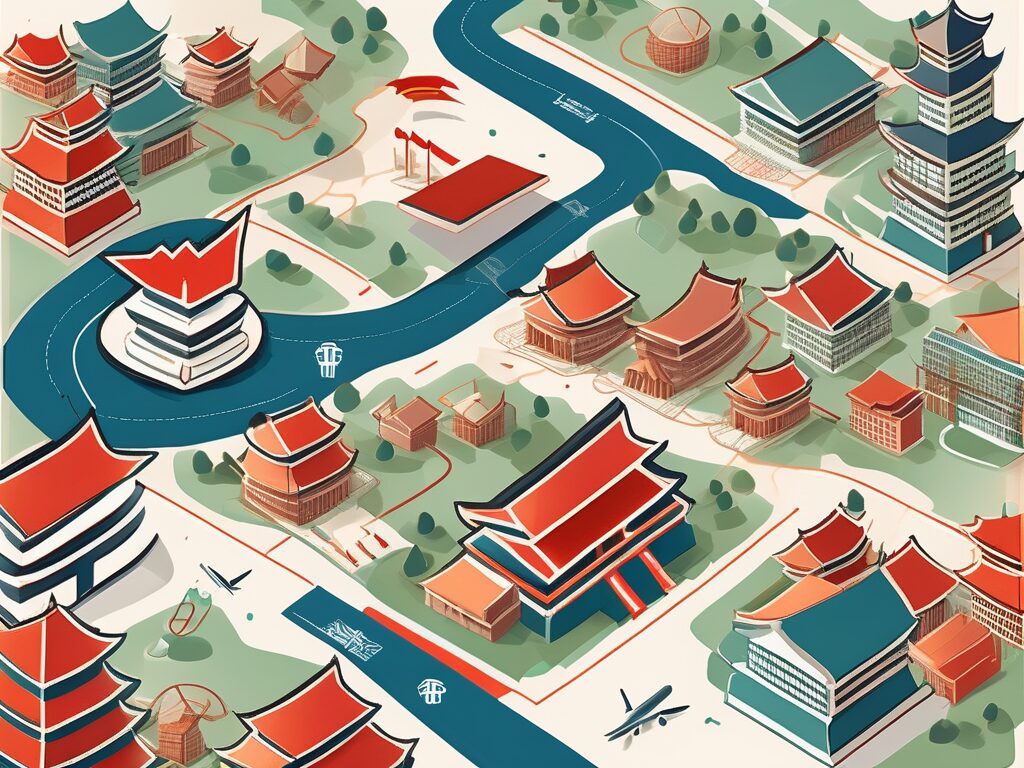As an international school teacher planning to embark on a journey to China, understanding the local education system is crucial. Not only does it help you to adapt to the new environment, but it also enables you to deliver your lessons effectively. Here, we delve into eight key insights that will help you navigate the Chinese education landscape.
1. Importance of Examinations
Examinations are a central part of the Chinese education system. The importance placed on exams is akin to the emphasis on GCSEs and A-Levels in the UK. However, in China, the stakes are even higher. The Gaokao, China’s national university entrance exam, is a prime example of this. It’s a rigorous and highly competitive exam that determines a student’s future prospects.
As an international teacher, understanding the weight of these exams will help you align your teaching methods to support your students better. It’s not uncommon for lessons to be geared towards exam preparation, much like revising for SATs in the States, but on a more intense scale.
2. Emphasis on Rote Learning
Rote learning, or memorisation-based learning, is a staple in the Chinese education system. This method is often contrasted with the more discussion-based and exploratory learning approaches common in Western countries. In China, students are expected to memorise and recite facts, figures, and texts, similar to learning times tables or key dates in history in the UK.
As an international teacher, this might require a shift in your teaching style. While fostering critical thinking and creativity is important, be prepared to incorporate rote learning techniques into your lessons.
3. High Respect for Teachers
In Chinese culture, teachers are held in high esteem, much like doctors or lawyers in the West. This respect is rooted in Confucian ideals, which value education and honour teachers. As a result, you may find that students are more deferential towards you than you might be used to.
However, this respect also comes with high expectations. Parents and students alike expect teachers to be knowledgeable, dedicated, and committed to their students’ success.
4. Competitive Nature of Education
The Chinese education system is highly competitive, with students constantly striving to outperform their peers. This competitiveness is similar to the race for top university spots in the UK or US, but it starts much earlier in China, often from primary school.
As an international teacher, it’s important to be aware of this competitive atmosphere. While fostering a healthy sense of competition can drive students to excel, it’s also crucial to ensure it doesn’t create undue stress or discourage cooperation.
5. Importance of Extra-Curricular Activities
While academics are paramount in China, extra-curricular activities are also highly valued. These activities, ranging from music and art to sports and clubs, are seen as essential for developing well-rounded students. They’re akin to the importance of hobbies and interests in a UCAS application in the UK.
As a teacher, encouraging students to participate in extra-curricular activities can help them develop skills outside the classroom, foster a sense of community, and provide a much-needed break from academic pressures.
6. Parental Involvement
Chinese parents are typically heavily involved in their children’s education. This involvement is often more pronounced than in Western countries, with parents playing an active role in homework, exam preparation, and school activities.
As an international teacher, you may find yourself communicating frequently with parents. Understanding their expectations and concerns can help you build a strong relationship with them and contribute to their child’s success.
7. Use of Technology
China is a global leader in technology, and this extends to its education system. The use of technology in the classroom, from interactive whiteboards to online learning platforms, is widespread. It’s comparable to the use of tech in Silicon Valley schools in the US.
As a teacher, embracing these technologies can enhance your lessons, engage students, and streamline administrative tasks. However, it’s also important to balance tech use with traditional teaching methods to cater to all learning styles.
8. The Language Barrier
While English is taught in most Chinese schools, the level of proficiency can vary widely. As an international teacher, you may face language barriers, particularly outside of major cities. This can be similar to teaching in non-English speaking European countries.
Learning basic Mandarin can help you communicate more effectively with your students and colleagues. Additionally, using visual aids, gestures, and translation tools can help overcome language challenges in the classroom.
In conclusion, teaching in China can be a rewarding and enriching experience. By understanding the nuances of the local education system, you can better adapt to your new environment and make a positive impact on your students’ lives.
Enhance Your Teaching Career with iQTS
Ready to take your international teaching career to the next level? The IQTS at UWE offers the International Qualified Teacher Status (iQTS) Programme, designed to elevate your professional development and ensure you meet the high standards required by international schools. With our iQTS programme, you can increase your chances of interview callbacks, accelerate your career progression with higher promotion rates and salary boosts, connect with a global network of professionals, and gain a profound understanding of international curricula. Don’t let the challenges of teaching abroad hold you back. Make Your Next Step with the iQTS programme and become the adaptable, qualified educator that international schools are searching for.

